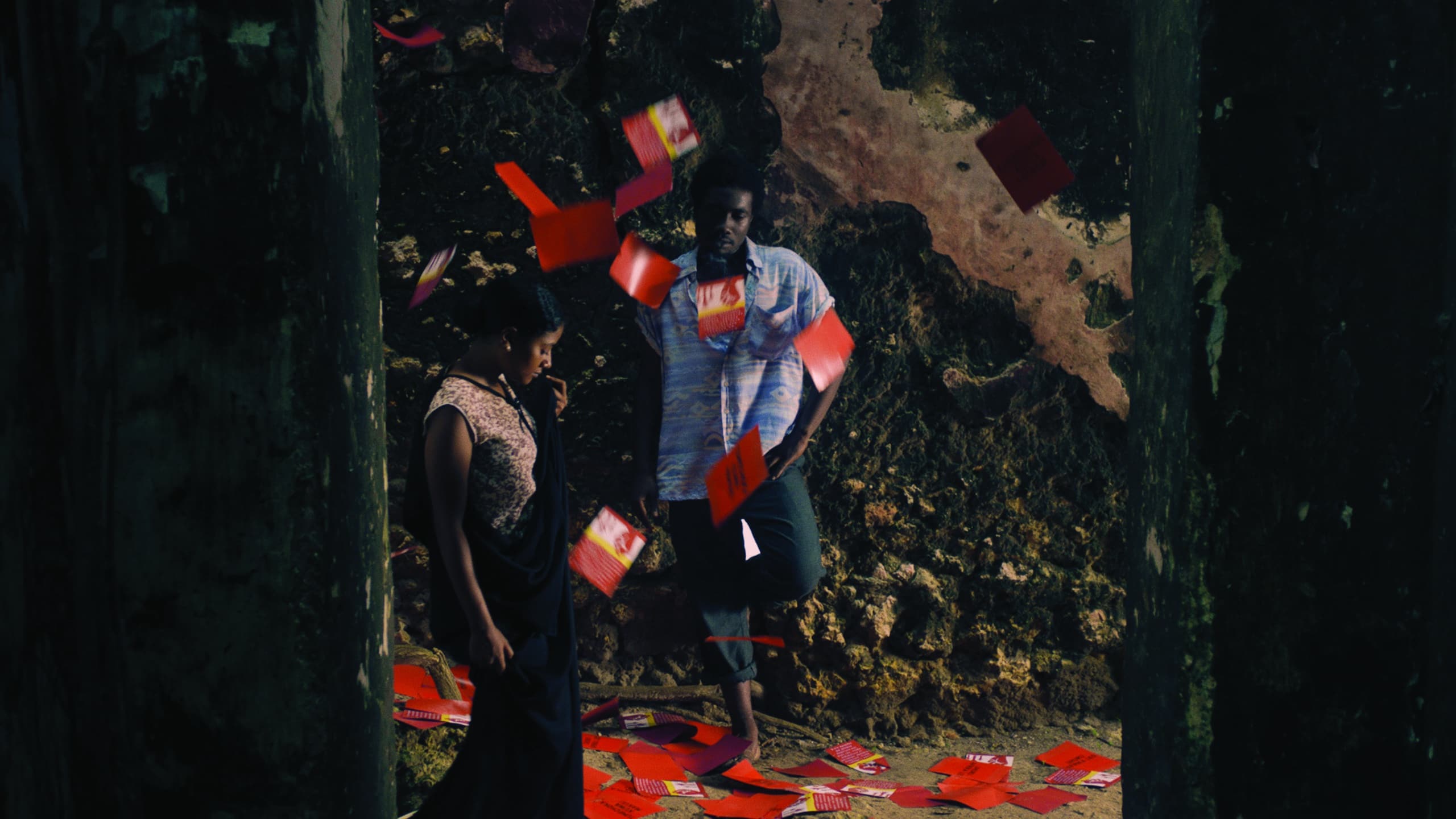At the cornerstone of contemporary Swahili cinema, Tanzanian filmmaker Amil Shivji is adamant about telling stories of contrast and community and promoting local talent.
FOR TWO YEARS, TANZANIAN FILMMAKER AMIL Shivji made the white, windswept beaches of Zanzibar his home. The island was the location for his film Tug of War (Vuta N’Kuvute), a “coming-of-age political love story set in 1950s Zanzibar” that he co-wrote, co-produced and directed.
He used local talent and resources for this film that won him accolades – the film was selected for the Toronto Film Festival in September.
But that has been the focus of Shivji’s work all along; telling stories of the working class and the communities he grew up with, at the cornerstones, called kijiweni in Swahili, where the most interesting stories are, where people of all backgrounds and classes cross paths, and where the personal meets the public.
Growing up in a lower-middle-class neighbourhood, Shivji always felt the stories of the marginalized were not told enough.
For this, he makes a film a year from his production platform, Kijiweni Productions.
“We just make sure that we keep telling stories in Swahili, with local cast and crew,” says Shivji, who is part of a new wave of filmmakers from the region.
“It’s been quite exciting to see [this new wave] grow significantly. But obviously, when I say significantly, it’s still a handful. But this wave has been very important because it’s not an easier route to take.
It’s really putting a lot on the line. You spend a couple of years raising the kind of finance you need with the risk of not making the film.”
It’s hard work without the necessary infrastructure to work off, but filmmakers like Shivji have been adamant to press on.
His repertoire includes more stories of class struggle, perseverance and human dignity; films such as T-Junction, which explores the struggle of the informal workers on the streets, and Samaki Mchangani, which challenges the notion of ‘Africa Rising’. His work has earned him the People’s Choice Award in Zanzibar and Best Director and Best Short Film in Africa. His films have screened in Los Angeles, Seattle, Washington, Toronto, Singapore and picked up awards in Tanga, Tanzania, and at the Zanzibar International Film Festival and FESPACO, a film festival in Burkina Faso.
“There’s always a sense of togetherness [in working-class communities]. There’s always a sense of love, community and solidarity, whether political, social or economic,” Shivji stresses again.
“It goes against all your business principles – competition and survival of the fittest. So, I think growing up seeing that being taught in schools and then seeing something else in the streets; the dire contrast has always pushed me towards stories of contradiction. And it always ends up in a place that’s pushing people together. So, I think for me that’s always been something that’s just pulled me towards a story and then you know, just pulling from the stories that exist around you.”
But the most important thing for Shivji is for his stories to hark back to the past. For Tug of War, he wanted the colonial oppression to seem contemporary as state oppression, which according to him, was the case in Tanzania at the time of the film being written and filmed.
“I felt like it was a film that was urgent, to be told right now and at least from what I’ve heard from the feedback we’ve got so far, the film feels quiet now, and that for me is very, very important.”
He also wants the stories to feel like they belong to the communities they are made in, by gaining their trust. Yet, the filmmaker laments that despite the best intentions, it’s still an uphill task to produce films in Tanzania with a local crew and cast.
“We just don’t have enough people. We’re fighting the same fights,” he rues.
For example, festival circuits are being given preference over local screenings.
Shivji is however hopeful his efforts will bear fruit one day.
“I think the future of filmmaking is very, very exciting in this region right now, because, like I mentioned, Swahili cinema has not been given the justice that it deserves… our language is everything. Language carries our history, our present and our future.”
True to his cultural mission, his production house has been doing more than just cinema.
“We have this three-tier approach – it’s production, training, mentorship and exhibition,” says Shivji.
There are workshops held in Swahili to build capacity in the local creatives to seek opportunities and set up an infrastructure for sustainable storytelling in Tanzania.
In his role as a lecturer at the University Of Dar es Salaam, Shivji does the same.
“So, I think we’ve done a lot in the past couple of years. And the biggest challenge is really to keep pushing to just maintain some sense of sanity during the entire process.”
BY INAARA GANGJI
